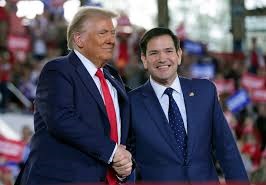
U.S. Expands Visa Restrictions in Central America Amid Geopolitical Contest with China
Washington’s move against Central American nationals allegedly linked to Beijing reflects how global power struggles between the U.S. and China are displacing smaller nations, reducing them to pawns in a rivalry that spans trade, technology, and sovereignty.
September 5, 2025

The United States has announced new visa restrictions on unnamed Central American citizens and their family members, accusing them of advancing the interests of the Chinese Communist Party (CCP). Secretary of State Marco Rubio justified the decision under the Immigration and Nationality Act, presenting it as a defense of U.S. values and influence in the region. Yet critics argue that Washington is extending its long-standing practice of policing other nations’ political choices, while offering no transparency or concrete evidence to the global public.
Geopolitical Rivalry Overshadows Sovereignty
The move must be understood within the broader U.S.–China struggle for global dominance. For years, both powers have used economic tools, security rhetoric, and information wars to extend their reach:
-
Trade Wars & Tariffs: Competing trade regimes have weaponized tariffs to shape global markets with the U.S. government targeting countries other than China.
-
Cybersecurity & Intellectual Property: Accusations of hacking and theft reflect a digital battleground that leaves smaller economies vulnerable.
-
Technology & Media Control: From TikTok’s contested ownership to restrictions on 5G networks, it is clear their is a desire to monopolize narratives and data flows.
-
Territorial & Political Conflicts: The fates of Hong Kong and Taiwan are folded into this rivalry, with democratic principles often sidelined by geopolitical bargaining.
-
Pandemic Narratives: COVID-19’s origins have been politicized, weaponized in global blame games rather than fostering collective solutions.
In this competition, Central American states like other countries are treated less as sovereign actors and more as terrain for U.S. and Chinese influence.
The visa restrictions reveal how global powers continue to instrumentalize smaller nations while denying them genuine autonomy. The U.S. frames its policy as a defense of democracy, but in practice it enforces obedience to Washington’s geopolitical agenda. Meanwhile, critics say China’s economic engagements often arrive with their own pressures and dependencies. For ordinary Central Americans, the outcome is clear: their rights, mobility, and futures are compromised by battles in which their decisive power is targeted.
This episode highlights a pressing truth: until international politics shifts from empire-driven competition to genuine respect for sovereignty, smaller nations will remain collateral damage in the rivalry between today’s global giants.